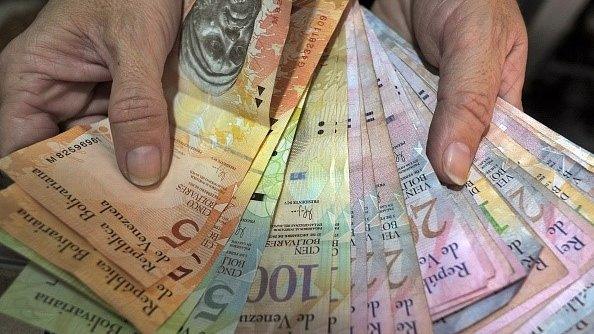Venezuela opposition pushes for President Maduro's exit
- Published
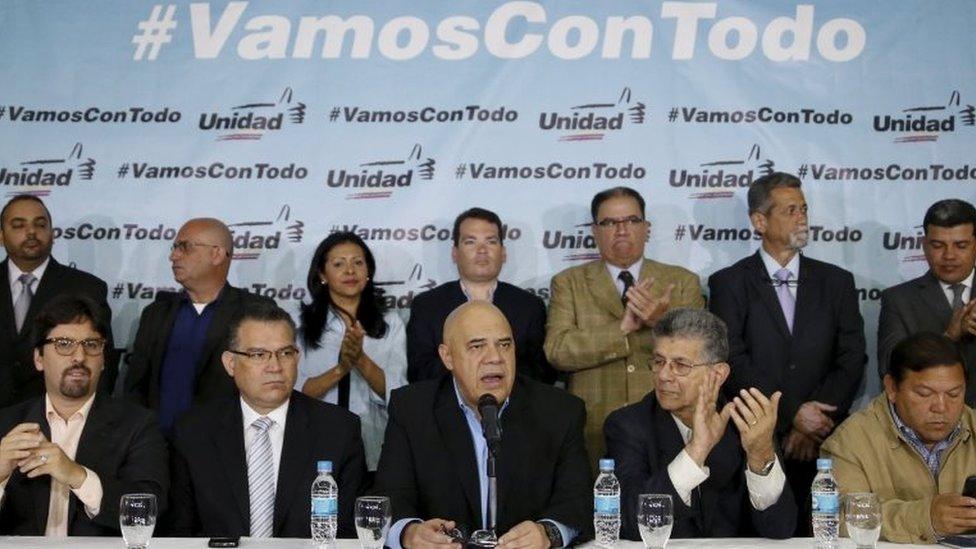
The opposition coalition presented a united front
A Venezuelan opposition coalition has announced how it plans to remove President Nicolas Maduro from office.
The MUD coalition had been meeting for weeks to decide how to install a new government. It said it would pursue "all constitutional means" for change.
The MUD said this would include a recall referendum, a constitutional amendment and mass protests.
Venezuela is deeply divided between supporters of Mr Maduro's socialist government and those who oppose it.
Drive for change
Parties opposed to the governing socialist party won overwhelmingly in legislative elections held in December.
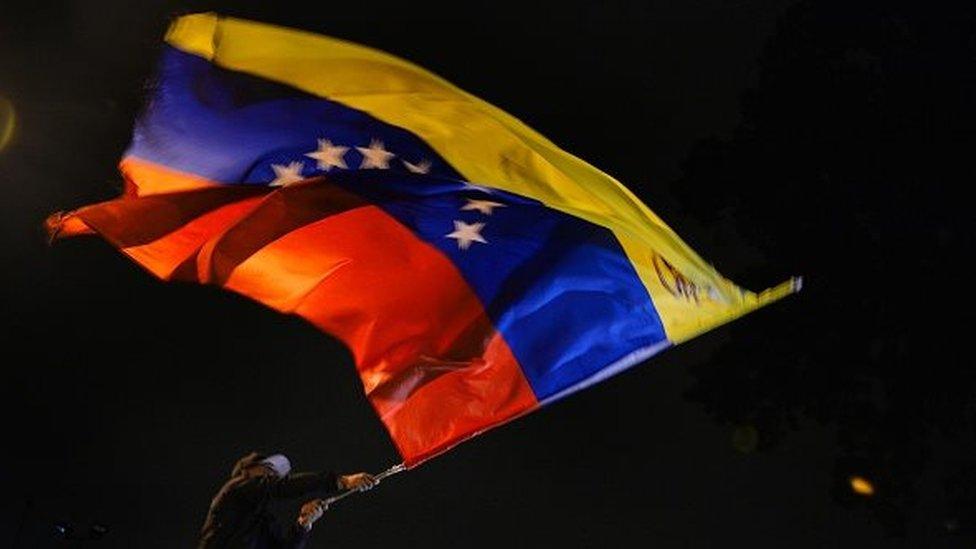
The opposition won in December's legislative elections and took control of the National Assembly
As a result, in January they took control of the National Assembly for the first time in 17 years.
Nevertheless, the executive branch remains under the control of President Maduro, whose term runs until 2019.
Many of the newly elected opposition lawmakers campaigned on a promise to replace the government before the end of Mr Maduro's term.
For the past weeks, MUD politicians had been discussing which strategy to pursue.
On Tuesday, MUD executive secretary Jesus Torrealba said the coalition would "call on the Venezuelan people to launch the largest popular pressure movement that has ever existed to activate all - I repeat, all - mechanisms for change".
What are the options?
The three options the opposition want to pursue are:
A recall referendum
A constitutional amendment
Popular protests

How would a recall referendum work?
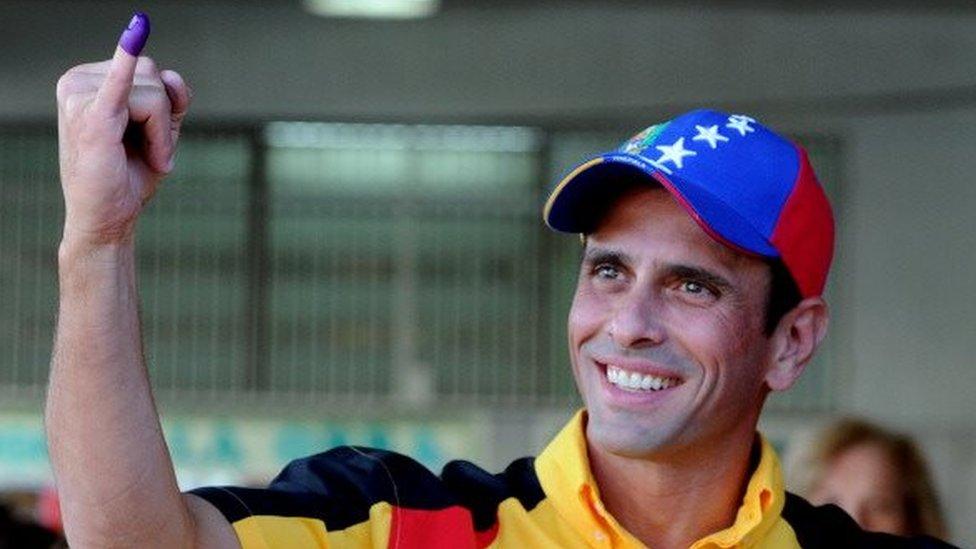
Opposition leader Henrique Capriles is one of those who favours a recall referendum
Under Venezuela's constitution, the president can be ousted by means of a referendum.
In order to trigger such a referendum, at least 20% of registered voters would have to sign a petition asking for a referendum. That would be 3.9 million voters.
But the referendum can only be called once the president has served half of this term.
As Mr Maduro started his six-year term on 19 April 2013, the opposition could start gathering signatures for a recall referendum after 19 April of this year.
For the referendum to be successful, an equal or greater number of voters than those who elected Mr Maduro would have to cast their vote in favour of the recall.
Mr Maduro won the 2013 election with 7,587,579 votes.

Could a constitutional amendment oust Mr Maduro?
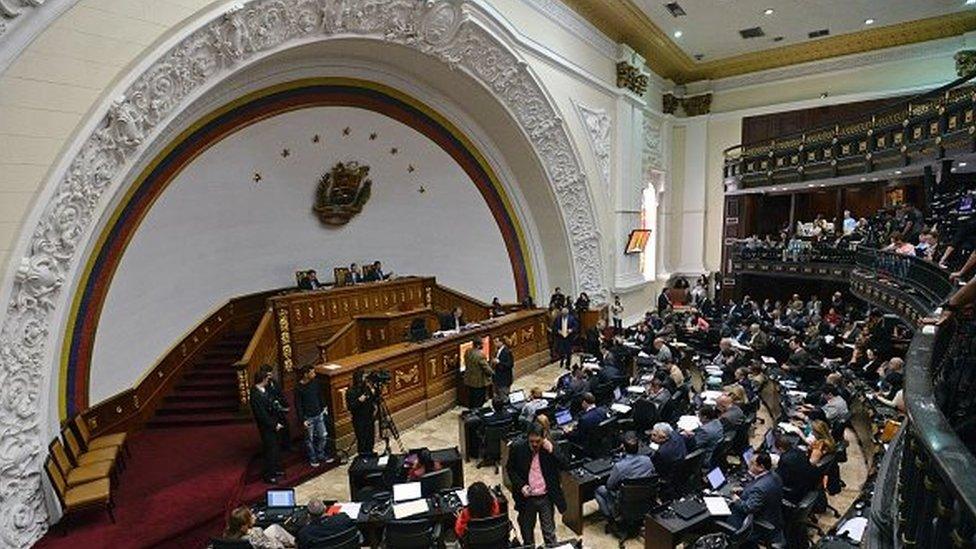
The National Assembly could propose a constitutional amendment
The opposition's plan is to introduce an amendment which shortens the presidential term from its current six years to just four with immediate effect.
That way, new elections would have to be held as early as December 2016.
Constitutional amendments can be proposed both by the National Assembly and through a petition signed by no fewer than 15% of registered voters.
Once the constitutional amendment is passed it has to be approved by the Venezuelan people in a referendum by a simple majority.

Will mass protest trigger a change of government?
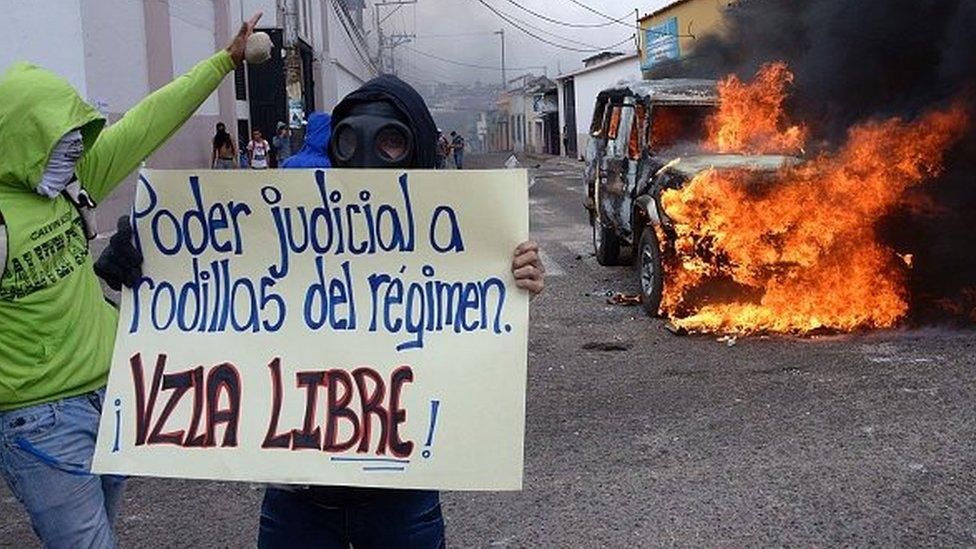
Protests started erupting again after the Supreme Court decision to curtail the power of the National Assembly
The MUD opposition coalition called on Venezuelans to take to the streets in the "largest movement that has ever existed" to force President Maduro to resign.
They stressed that protests should be peaceful and not descend into violence as happened in 2014, when 43 people from both sides of the political divide died during months of unrest which swept through Venezuela's major cities.
The opposition is counting on widespread discontent with Venezuela's dire economy to draw multitudes into the streets.
They called the first rally for Saturday 12 March.

Why three approaches and not one?
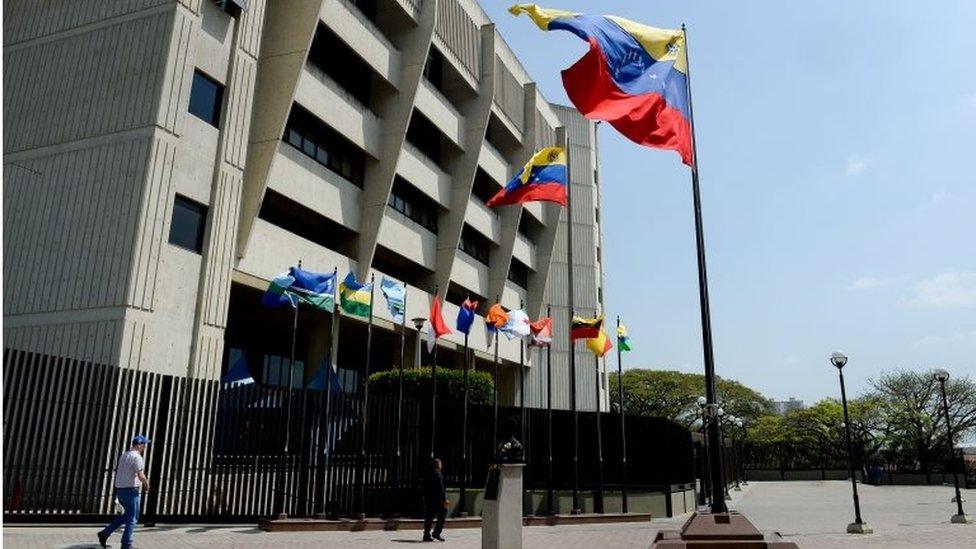
The opposition does not trust the Supreme Court
Since the opposition gained control of the National Assembly it has been thwarted in its efforts to change laws by the Supreme Court.
First, three opposition lawmakers were barred from taking up office after the governing socialist party alleged irregularities.
This move deprived the opposition of its two-thirds majority, which would have given it the power to remove judges from the Supreme Court and create a constituent assembly with a view to rewriting the constitution.
More recently, the Supreme Court curtailed the power of the National Assembly to review government appointments of its judges.
Following these setbacks, the opposition is weary of the judiciary and reluctant to place all its eggs into one basket.

What are the chances of any of the three succeeding?
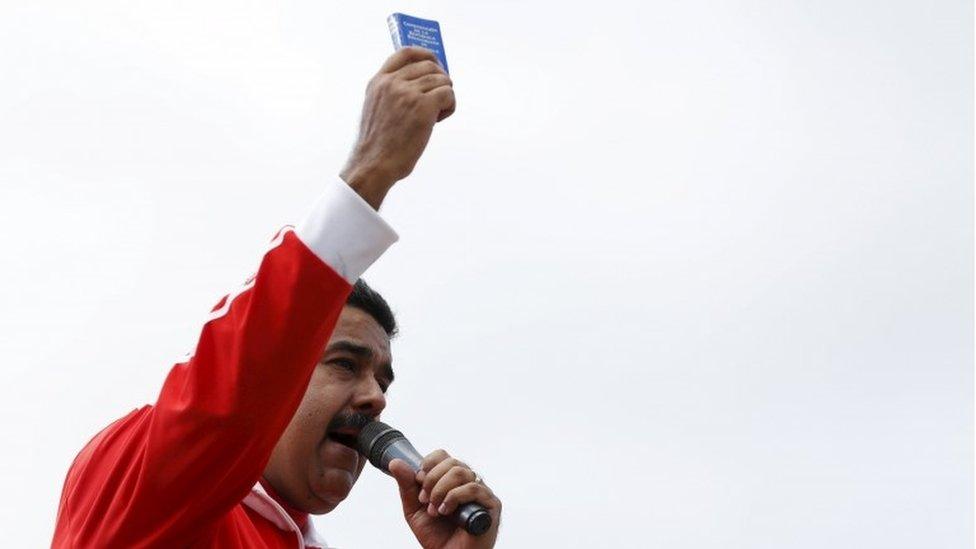
1. Recall referendum
While on paper a recall referendum looks like the safest bet to bring about a change of government, the opposition fears this could be sabotaged by the National Electoral Council.
The signatures needed to trigger a referendum have to be collected within three days and then checked by the National Electoral Council, which the opposition says is packed with allies of President Maduro.
The opposition also fears that the electoral council could delay proceedings. The timing of the referendum is key because the eventual outcome could be very different depending on when it is held.
Under the constitution, if the president is recalled during his first four years in office, new elections are called,
However, if he is recalled in the last two years of his term, the vice-president takes over.
It is in the opposition's interest to have new elections, rather than have a socialist vice-president serve out Mr Maduro's term.
2. Constitutional amendment
The opposition fears the Supreme Court, which is dominated by judges nominated by the socialist government, would derail a constitutional amendment aimed at shortening Mr Maduro's term.
It is also not clear how many people would support shortening the term of the president for good, as such a change would not only apply to Mr Maduro but to future presidents as well.
3. Mass protests
Some of the more moderate members of the opposition fear that mass protests may have an adverse affect.
If they turn violent, as they did in 2014, this strategy could lead to the jailing of many opposition activists.
They also say that President Maduro is unlikely to take much note of them as he has in the past dismissed those who oppose his government as "imperialist stooges".
More radical members of the opposition say that discontent with the government has grown since 2014 and that the numbers of people likely to protest would be much bigger and make it hard for Mr Maduro to ignore.
- Published3 March 2016
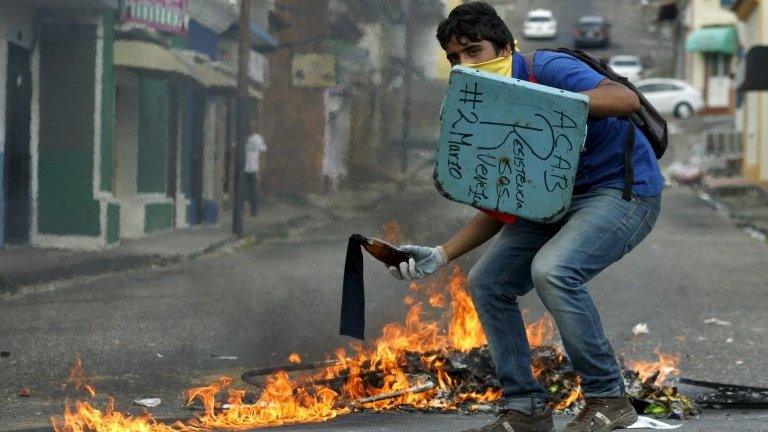
- Published7 January 2016
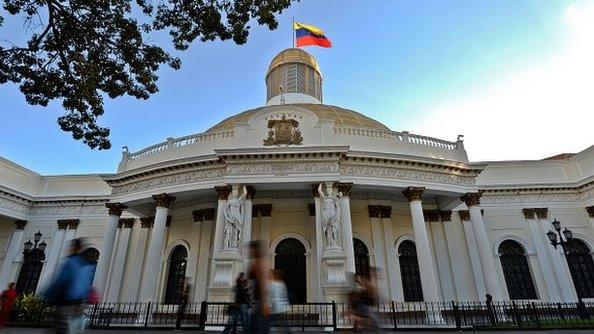
- Published7 December 2015
